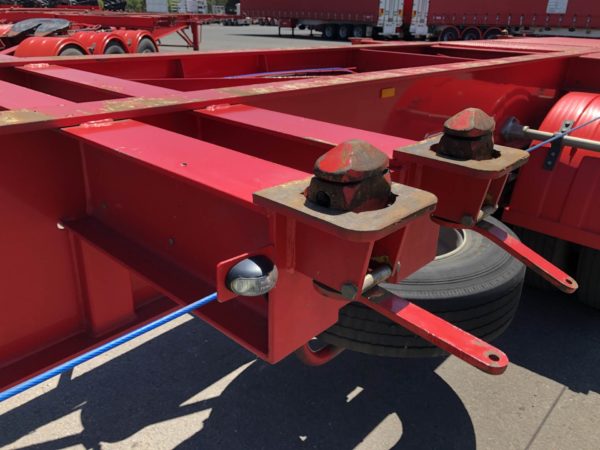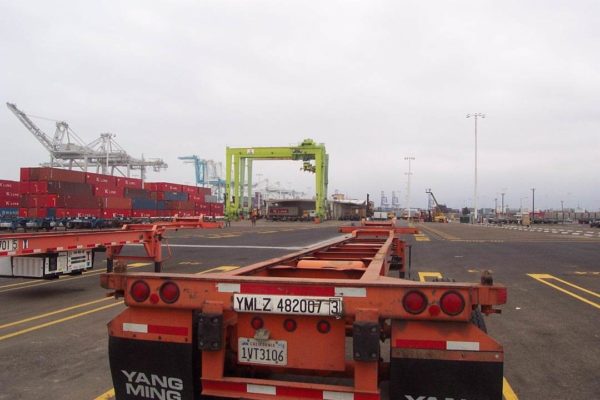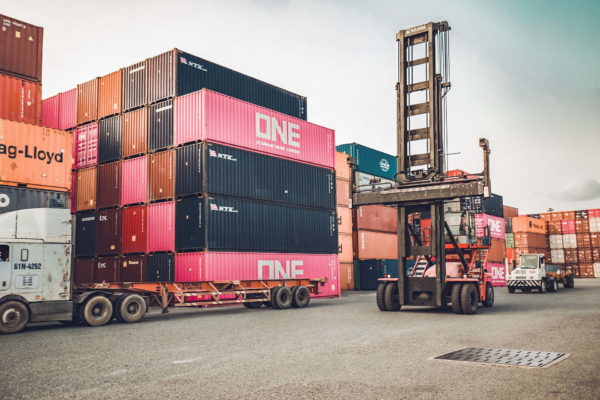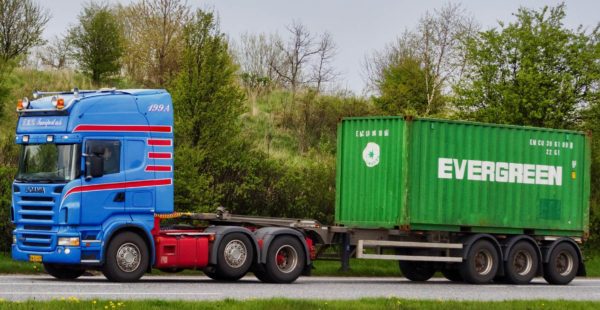A skeletal trailer is a minimal, lightweight metal trailer most commonly designed for transporting containers, although also capable of being used as a hook loader for loading a skip and a number of other specialist applications with the right attachments and supports.
As standard shipping containers come in a number of sizes, skeletal trailers can either be specific to one particular size, extendable to accommodate multiple sizes or have multiple twist lock locations to give flexibility with sizes.

Containers come in 20-foot, 30-foot, 40-foot, 45-foot and ISO intermodal sizes. The longest trailers can carry one 45-foot container or two 20-foot containers.

The containers must be loaded onto the trailer using a straddle carrier, forklift or container handler.

With multiple ISO lock positions, trailers can be positioned so that the centre of gravity is optimised. For example, when carrying one 20-foot container, that should be able to be centre-mounted, as opposed to having it in the front or rear position.

Sliding skeletal trailers are more expensive, but this convenience comes with the possibility of more wear and tear. Some skeletal trailers will have a tipping mechanism to allow for unloading containers filled with loose material.
The trailers have up to 12 twist locks, with a minimum of four twist locks. They will have up to four axles with single or dual wheels; one of the axles could be a lift axle.
The number of axles and whether they are duals or singles depends on what the trailer is used for. If it’s simply moving empty containers, it requires fewer axles and wheels to support the load.
Most new skeletal trailers have air suspension as opposed to steel suspension. Air suspension is more expensive but offers a much better ride. Drum brakes are available and, for trailers that carry very heavy container loads, can be an advantage over drum brakes.
A good quality steel skeletal trailer should be able to handle in excess of 70 tonnes, but it’s important to read the specification plate provided by the manufacturer.
UK-spec skeletal trailers are semitrailers; we don’t get the American or Australian b-trains/b-doubles.
Skeletal trailers can also have side loader mechanisms for self-loading of containers.
